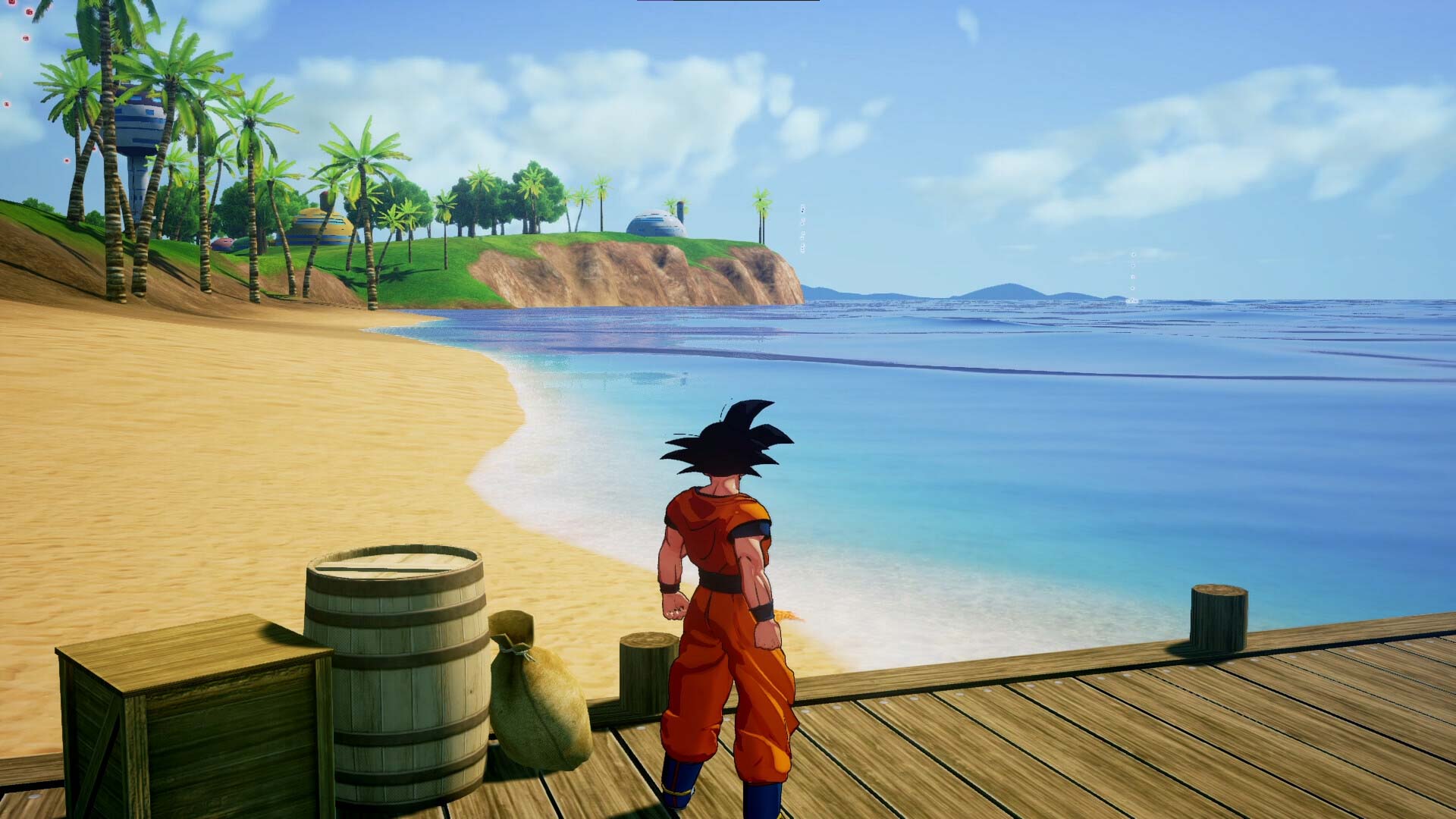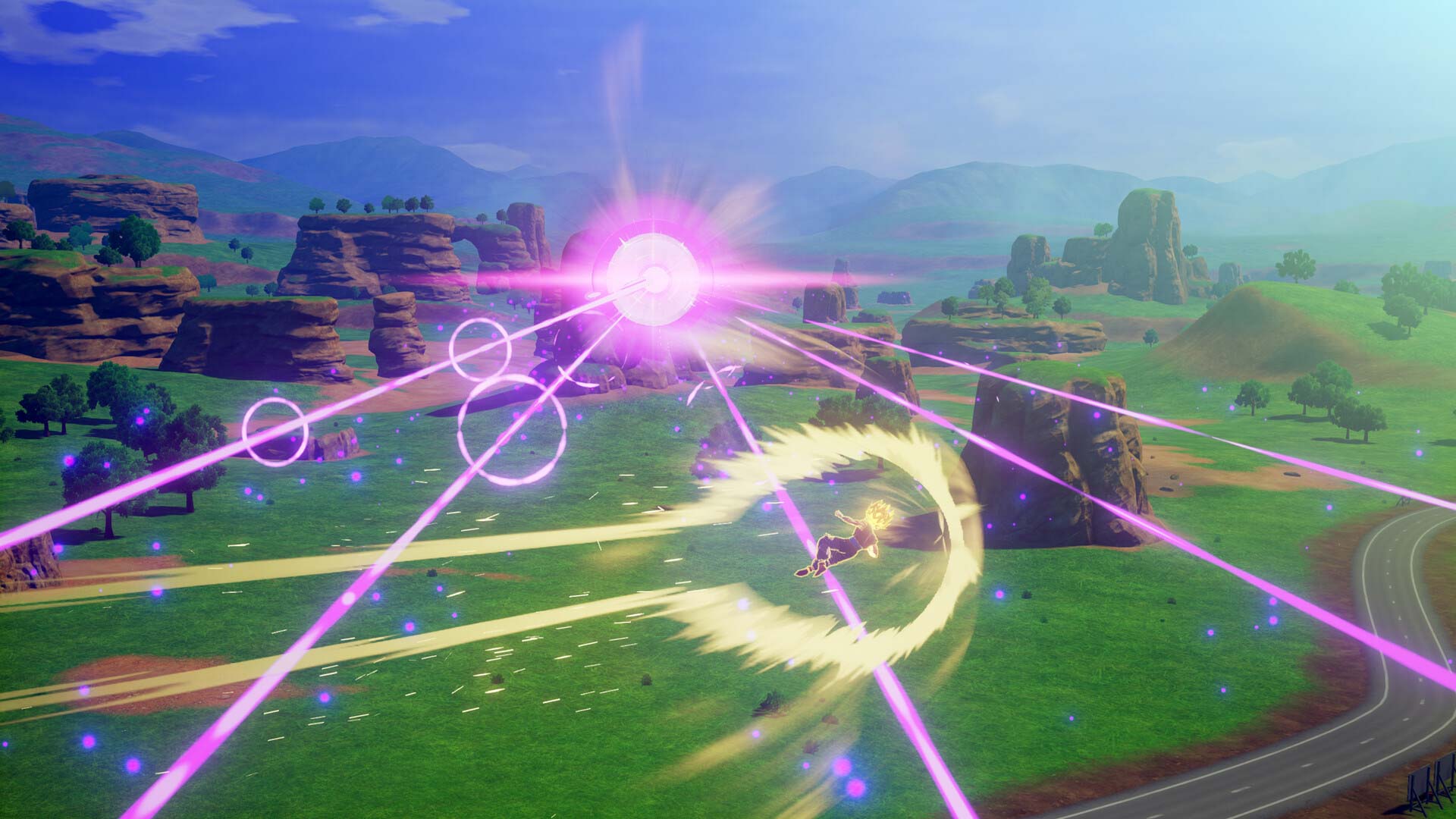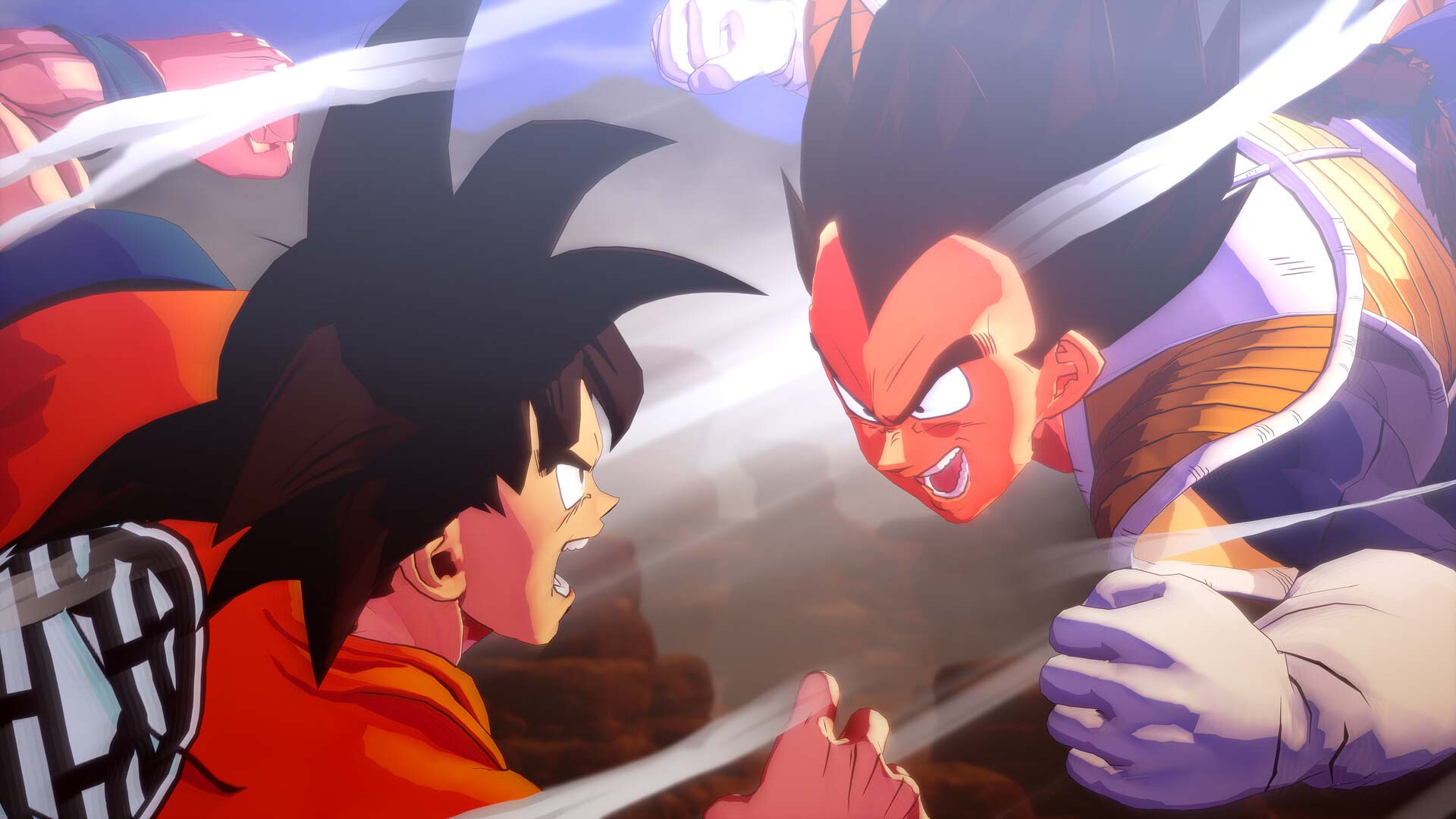Dragon Ball Z: Kakarot isn’t a great game, and it doesn’t need to be
Dragon Ball Z: Kakarot is a feel-good power fantasy — what more do you want?

Welcome! This column is part of a series in which members of the Tom's Guide staff share what they're playing and enjoying right now, with the goal of helping you find great games that you may have missed. Be sure to check out our previous entry, where we talk about Hi-Fi Rush.
Dragon Ball Z: Kakarot must seem absolutely incomprehensible to someone who didn’t grow up reading or watching Akira Toriyama’s beloved series. Who are these dozens of characters? Why can everyone fly? Who’s the green guy? Just how much hair gel do you think these guys use? I can’t, in good faith, recommend the game to a general audience in the mood for a solid action/RPG. I can’t even promise that DBZ fans will love it, considering that they’ve heard this particular story a thousand times before, and the “high-octane martial arts battles” to “interminable cutscenes” ratio is not favorable.
And yet, it’s the only game I’ve consistently wanted to play for the last two weeks and counting.
Since October, I feel like I have played nothing but great games. Mario + Rabbids: Sparks of Hope was great. Bayonetta 3 was great. God of War: Ragnarok was great. Marvel’s Midnight Suns was great. Cyberpunk 2077, which I finally got around to playing last month, was especially great. After a solid five months of great games, I have come to the unfortunate conclusion that great games are exhausting. And when the great game can’t deliver, the pretty good game steps up.
Rock the dragon

If you haven’t read our Dragon Ball Z: Kakarot review, here’s the short version: it’s a semi-open-world action/RPG where you play through the whole story from DBZ’s original manga/anime run. You control series protagonist Goku, as well as a handful of other characters, as they fly around big levels, fight enemies in real-time battles, gather tons of resources, cook stat-enhancing meals, complete side quests, chat with side characters and so forth. If you’ve had your fill of DBZ games already, this one won’t change your mind. But there’s solid combat and character customization, and it’s pretty fun to fully explore some locations that the anime only hinted at.
The game debuted back in 2019, and recently got a current-gen update for PS5 and Xbox Series X. As such, it boasts better graphics, smoother frame rates and faster load times than before. With the update patch sparking renewed interest in Kakarot, I figured it was high time to give the game a full review, and expected to simply put it down once I was done writing.
However, as it often does, real life wreaked havoc with my plans. Without going into gory details, I’m currently recovering from two different surgeries, and as any convalescent patient can attest, not feeling 100% takes a slow and steady toll on your mental state. Suddenly, I didn’t feel like immersing myself in a great adventure or mastering a complex gameplay system. While I’m not proud to admit this, I felt much more like button-mashing my way through a familiar story, with plenty of bright colors and flashy effects along the way. I wanted to see a bunch of numbers go up after minimal effort on my part, and zone out when the cutscenes started dragging on too long.
In short, I wanted a pretty good game. And that’s precisely what Dragon Ball Z: Kakarot is.
In defense of the pretty good game

Back in 2018, I found myself talking with a friend of mine about what games we were playing. This was late in the year, so we had an absolute glut of amazing titles to choose from. Was I playing God of War? Or Read Dead Redemption 2? Or Spider-Man? Or Assassin’s Creed Odyssey? Or Shadow of the Tomb Raider?
No, I replied sheepishly; I was playing Dragon Ball Xenoverse, another lightweight action/RPG that exists primarily for fanservice purposes. It wasn’t the best game available at the time; heck, it wasn’t even the best Dragon Ball game.
He replied that I’d chosen a pretty good game, and that those were often the best kind of games.
Pretty good games, he argued, don’t have any expectations to live up to. They’re not a huge part of the critical discourse, and fans don’t argue endlessly over whether they’re true masterpieces or overrated fad fodder. No one uses them to justify a pointless console war. You don’t have to think deeply about them while the controller is in your hand. They’re the video game equivalent of pizza: good, satisfying fare that doesn’t challenge your tastes in any way, but also almost never leaves you disappointed.
Just as there’s no universal definition of a great game, there’s no universal definition of a pretty good game. But I think most people will know one when they see one. They’re “video game-y” video games, for lack of a better term, whose sole job is to keep you entertained while you’re playing them. Age of Empires IV is a great game; SpellForce III is a pretty good game. Elden Ring is a great game; Mad Max is a pretty good game. The Legend of Zelda: Breath of the Wild is a great game; Hyrule Warriors: Age of Calamity is a pretty good game.
Dragon Ball Z: Kakarot isn’t broadening my cultural horizons, or interrogating my sensibilities, or showing me something I’ve never seen in a video game before. But it is putting a smile on my face when real life is getting me down. It’s probably too highfalutin to say that the game is medicinal. But it’s lifted my spirits when a deeper, weightier game would probably have me feeling more pensive and introspective.
Just as you can’t eat pizza for every meal, you can’t play pretty good games and nothing but. Some games should challenge us, whether it’s in terms of gameplay or story or structure. But I’m glad that even as the gaming medium evolves and matures, there’s still a place for titles like Dragon Ball Z: Kakarot. And if you need a mental pick-me-up, you might just be glad of it, too.
Read next: Road 96 is a randomized road trip you won't forget.
Sign up to get the BEST of Tom's Guide direct to your inbox.
Get instant access to breaking news, the hottest reviews, great deals and helpful tips.
Marshall Honorof is a senior editor for Tom's Guide, overseeing the site's coverage of gaming hardware and software. He comes from a science writing background, having studied paleomammalogy, biological anthropology, and the history of science and technology. After hours, you can find him practicing taekwondo or doing deep dives on classic sci-fi.

